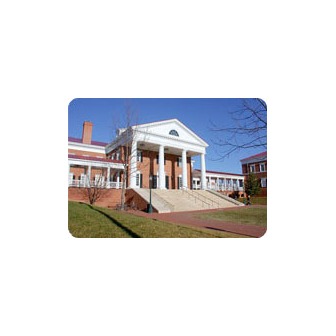University of Virginia





"On my honor, I pledge that I have neither given nor received help on this assignment."
Established in 1842, the University of Virginia Honor System is the nation's oldest student-run honor system and one of U.Va.'s most cherished institutions. Based on the principle that University students want to be trusted, the Honor System helps create and strengthen a school-wide community of trust.
This tradition of student self-governance began with an incident in the University's early years. On the night of November 12, 1840, a masked student shot and killed John A. G. Davis, a popular professor of law. Sobered by the incident, the students agreed to a plan whereby they "vouched" for one another by agreeing to report misbehavior. In the same spirit, University faculty established an "honor pledge" on examinations, agreeing to trust students when they pledged that they had "neither received nor given assistance" on their schoolwork.
2000 to Present
In the August 2009 U.S. News rankings of best colleges, the University of Virginia ranked the No. 2 best public university in the nation. U.Va. continues to rank in the Top 25 among the best of all national universities, public and private. In the twenty-two years that U.Va. has been ranked by U.S. News, the University has never dropped from the Top 25 group, and in the twelve years since U.S. News began ranking public universities as a separate category, the University has ranked either No. 1 or No. 2. Read more.
The many highlights of the 2000s include the creation of numerous new research centers, institutes, buildings-such as Wilsdorf Hall; the Mary and David Harrison Institute for American History, Literature, and Culture; and the Albert and Shirley Small Special Collections Library. In 2007 the Frank Batten School of Leadership and Public Policy was created by a gift from Frank Batten, Sr. The Batten School trains students for public service careers in domestic and international areas. Graduates assume leadership positions in government, in the non-profit sector, and in selected private sector firms.
The University's new financial aid program, AccessUVa, was created in 2004 to keep higher education affordable for U.Va. students. The program is in keeping with the University's mission-as envisioned by Thomas Jefferson-to educate the public citizenry as a basis for participating in a democratic republic.
Founding of the University
Thomas Jefferson founded the University of Virginia in 1819. He wished the publicly-supported school to have a national character and stature. Jefferson envisioned a new kind of university, one dedicated to educating leaders in practical affairs and public service rather than for professions in the classroom and pulpit exclusively. It was the first nonsectarian university in the United States and the first to use the elective course system.
Jefferson considered the founding of the University to be one of his greatest achievements. Undertaking the project toward the end of his life-after a long, illustrious career that included serving as a colonial revolutionary, political leader, writer, architect, inventor, and horticulturalist-he was closely involved in the University's design. He planned the curriculum, recruited the first faculty, and designed the Academical Village, a terraced green space surrounded by residential and academic buildings, gardens, and the majestic center-point-the Rotunda. The most recognizable symbol of the University, the Rotunda stands at the north end of the Lawn and is half the height and width of the Pantheon in Rome, which was the primary inspiration for the building. The Lawn and the Rotunda have served as models for similar designs of "centralized green areas" at universities across the United States.
The University opened for classes in 1825 with a faculty of eight and a student body numbering sixty-eight. Jefferson took great pains to recruit the most highly qualified faculty, five of whom were found in England and three in the United States. Instruction was offered in ancient languages, modern languages, mathematics, moral philosophy, natural philosophy, chemistry, law, and medicine. The students came from the American South and West; interestingly, though, most were not Virginians.
Jefferson opposed the granting of degrees on the grounds that they were "artificial embellishments." In 1824, however, the Board of Visitors authorized granting the master of arts degree. The doctor of medicine, or M.D., was awarded to the first graduates of the School of Medicine in 1828, and the bachelor of laws degree, or LL.B., was first awarded for law school graduates in 1842. The bachelor's degree was awarded beginning in 1849, but became the standard undergraduate degree and a prerequisite for the master's degree in 1899, bringing the University into conformity with other institutions of higher learning. The Ph.D. has been awarded since 1883.
Explore Related Categories







